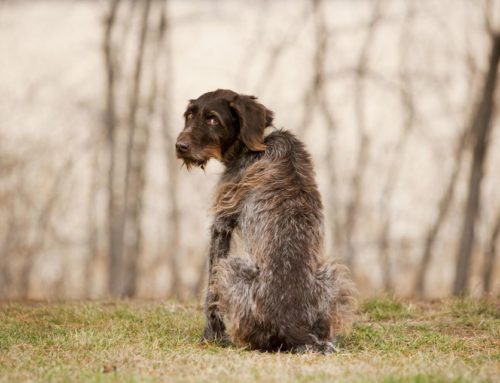Animal Welfare Act. The Animal Welfare Act was signed into law in 1966. It is the only Federal law in the United States that regulates the treatment of animals in research, exhibition, transport, and by dealers. The Act is enforced by USDA , APHIS , Animal Care.
There are only a handful of federal animal protection laws: The Animal Welfare Act: Signed into law in 1966, the Animal Welfare Act. … The ì28 Hour Lawì: This law, enacted in 1873, requires vehicles transporting certain animals for slaughter to stop every 28 hours to allow the animals exercise, food and water.
Animal law is a combination of statutory and case law in which the nature ñ legal, social or biological ñ of nonhuman animals is an important factor. … housing disputes involving “no pets” policies and discrimination laws. damages cases involving the wrongful death or injury to a companion animal.
Why we should Protect Wildlife worldwide. … The term wildlife not only covers wild animals but also accommodates all undomesticated creatures including birds, insects, plants, even microscopic organisms. To maintain a healthy ecological balance on this earth, all living creatures should be treated as important as humans.
https://www.huffingtonpost.com/entry/12-things-we-should-all-do-to-protect-endangered-species_us_58bd9c87e4b0abcb02ce2067
Educate your family about endangered species in your area. Itís not just about snow leopards in Russia, itís about the ecosystem in your own backyard. Teach your friends and family about wildlife, birds, fish and plants that live near you. Just awareness of these species is a critical step. From the worms in the garden to the bats that pollinate and control the mosquitos, there are many ways that our daily habits at home affect these creatures.
Recycle and buy sustainable products. Much of what threatens local populations has to do with development and more and more of the natural world is plundered to product new goods. Never buy furniture made of wood from rainforests or endangered trees. Recycle your cell phones, because a mineral used in electronic production is mined in gorilla habitat. Donít use palm oil because forests where tigers live are being cut down to plant palm plantations.
Grow native plants. Itís a no-brainer but local species rely on local plants. You are providing food and shelter for native wildlife and you can reduce your water usage at the same time. Attracting native insects like bees and butterflies can help pollinate your flowers. And conversely, invasive species compete with native species for resources and habitat, threatening biodiversity. They can even prey on native species directly, forcing native species towards extinction. For more information about native plants in your area, visit http://www.plantsocieties.org
Reduce your water consumption. During droughts, people get better about not watering their lawns, but we need to understand that clean water is a global problem for wild animals, so the less humans consume, the better. Never dump chemicals or pharmaceuticals down toilets, storm drains or into streams or lakes.
Reduce your personal footprint. Drive less, walk more. Support better public transport, use biodegradable products and eat whole food from your farmers market.
Do not buy plastic products. Take your bags to the store, reuse containers and properly dispose of lightweight plastics. Wild animals get tangled in these products, and they end up in the ocean being ingested by small fish and killing off beneficial microorganisms.
Pressure your civil servants. It cannot rest on the scientific community alone to defend the natural world, voters and consumers must take a stand. This means singing petitions, writing letters and donating.
Volunteer your time to protect the wildlife in your area. Wildlife refuges,parks, and other places are often underfunded and desperate for help.Volunteering at one of these places to protect the animals might mean just educating visitors, or picking up litter.
Do not purchase products from companies that are known polluters. Many industries pollute natural water resources and lobby hard so that they donít have to clean up their own messes. You can do your part by not giving these companies your business, and cast your vote with your dollar. Spread the word about bad business practices and when it dings their bottom lines, these companies will take notice.
Get in touch with your Fish and Game Department. If you hunt, keep your licenses up to date and stay in touch with your local WFG so that you know which populations of game need culling and which are under threat. Hunting,instituted properly, is a sustainable way of maintaining wild populations like deer and turkey.
Black out the Black Market. Sometimes when we travel, we donít realize that the souvenirs we are buying are under threat. Avoid supporting the market in illegal wildlife including: tortoise-shell, ivory, and coral.
Herbicides and pesticides are hazardous pollutants that affect wildlife at many levels. These chemicals take a long time to degrade and build up in the soils before disseminating throughout the food chain. Critical predators like hawks, owls and coyotes suffer if they eat poisoned animals, and it can rock whole populations. Amphibians are particularly vulnerable to these chemical pollutants and its unnecessary! For alternatives to pesticides, visit http://www.beyondpesticides.org
Each year, more than 100 million animalsóincluding mice, rats, frogs, dogs, cats, rabbits, hamsters, guinea pigs, monkeys, fish, and birdsóare killed in U.S. laboratories for biology lessons, medical training, curiosity-driven experimentation, and chemical, drug, food, and cosmetics testing.
Your gift to Pet Happy Life will help to ensure that many homeless animals receive the medical care they need, as well as a chance to be adopted into a caring home.







Leave A Comment
You must be logged in to post a comment.